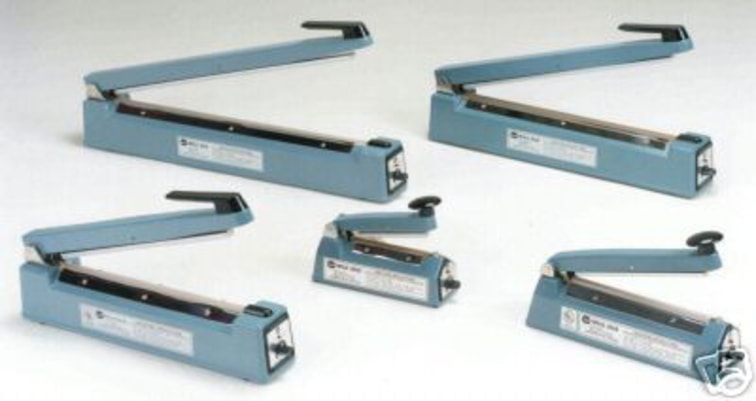Everything You Need to Know About Bag Sealers

If you need a bag sealer, there are two kinds of sealers to buy, and it is extremely important to know what the pros and cons are for both. These are impulse sealers and direct heat sealers.
While both sealers are created to seal bags shut quickly, they seal the bag in different ways, and one sealer will be more beneficial than the other, depending on the bag that you want to seal.
Impulse Sealers
These sealers do not need to be warmed, so no heat is required in order to operate. Instead, they use electricity in order to quickly heat and seal the bag. After the sealing takes place, the hand held impulse sealer cools down. These are known as very convenient sealers because they do not need any preparation time or time to warm up before use. Furthermore, there is a minimal chance of burning. An impulse sealer is the best sealer to use for thermoplastics, such as the following:
- Polyethylene (PE)
- Polypropylene (PP)
- Polyvinyl Chloride (PVC)
- Polyvinyl (PV)
- Polyurethane
- Polyflex
- Bubble Wrap
- Pilofilm
- Kel-F
- Mylar
- Nylon
- And More.
Direct Heat Sealers
Also known as constant heat sealers, these healers constantly need heat in order to seal plastic. This normally involves both sides of the jaw that you seal with, and the jaws get consistently hot. Since that is the case, you will need to be more careful with the sealer to prevent you or your application from getting burned. While impulse sealers use thin materials, direct heat sealers are thicker materials. A direct heat sealer is the best sealer to use for the following:
Poly Cello Film
Cellophane
Kraft Paper
Waxed Paper
Coated Polypropylene (PP)
And Gusset Bags.
Here are all the different “forms” of sealers, all of which can be direct heat or impulse sealers. All of these forms of sealers are great in their own right, and there is at least one you will favor over the others.
Portable Sealers
Portable or hand sealers are made to form packaging around goods and merchandise. Hand held impulse sealers are great for sealing both small bags of valuable goods as well as large bags that require more than one layer of film, like with pallet covers. The luxury of these sealers is that, for the most part, you can take them anywhere you go. Most sealers of this type can seal films at up to 10 mil thick.
Foot Sealers
Also known as pedestal sealers, these is the best sealer to buy for a “hands-free” experience. Your foot powers the sealers for a continuous operation, and your hands are free to feed bags into the sealer. Many foot sealers can seal films at up to 15 mil thick, with select high-end direct heat foot sealers capable of sealing film at up to 20 mil.
Automatic Sealers
An automatic sealer is arguably the most expensive form of sealer that you can buy, but its benefits for you and your business are astronomical. These sealers require minimal supervision or participation, and are programmed to seal bag after bag until you run out of film. This is the best type of sealer to buy if you need hundreds or thousands of bags packaged in a day.
Double Impulse Sealers
These sealers involve two sealing bars; one at the top and one at the bottom. They create very thick and highly resistant bonds for applications that are rugged and considered heavy-duty. They are one of the strongest sealers that you can buy, and are compatible with films that are up to 20 mil thick.


